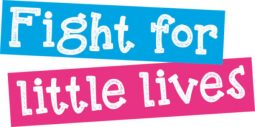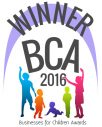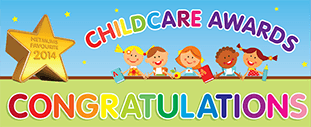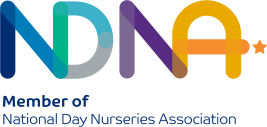At Your Nursery
Learning through play
At Honeybuns Nurseries our main aim is to provide a stimulating, caring and secure environment for your child in which they will blossom.
We observe our key children, following the structure and curriculum of the EYFS to gain an understanding of how they develop and the style in which they learn. From these observations we are able to tailor our provision and the activities we offer for each individual child’s stage and needs. Through this we strive for every child to achieve their full potential and beyond, gaining the most from the time they spend with us.
We cover the seven areas of learning and development of the early year’s foundation stage which are:
- Personal, social and emotional development
- Communication, Language
- Physical Development
- Literacy
- Mathematics
- Understanding of the world
- Expressive Arts and Design
We value parents input in their child’s learning and share interests that the children have with us, understanding the importance of home and setting links. We hold parents evenings throughout the year to share each child’s learning and discuss possible next steps by working together.
We have a range of resources and activities available to the children all day every day throughout the different rooms for them to explore.
Sensory/Tactile play includes – Sand, water, clay, play dough, salt, corn flour gloop, pasta, lintels, flour, sugar, cereal, beans, mud, shaving foam and exploring objects from the natural environment.
Expressive Arts and Design includes – dancing, cooking, painting and drawing using a range of mark making resources such as pens, pencils, crayons, charcoal, pastels, sponges, ink stamps, sticks with paint, printing, role-play area and small world toys.
Physical Development activities – Balancing Beams, balance bikes, gardening, climbing, obstacle courses, walks in the local environment. Children are encouraged to become aware of their bodies physical needs and the need for a healthy life style.
Understanding of the World – Computer games to develop ICT skills, remote
control bugs, sound boxes that record voices, magnetic games, feelings circle times, and collections of natural resources to explore.
Mathematics – Resources and activities are provided to ensure that the children are given opportunity to develop and improve their skills in counting, understanding and using numbers, calculating simple addition and subtraction problems, and to describe shapes, spaces and measures.
Outings in the local environment – walks to the library to change and choose books, walks to the park, walks to the shops to buy snacks, walks to feed the ducks and explore the local environment.
Butterflies & Squirrels (Under 2’s Areas)
In the baby and toddler rooms we aim to establish a good relationship with the children and to be able to continue your daily routine and wishes as much as possible. All the babies and toddlers receive individual care as well as group activity time, which will include arts and crafts, singing and music time, along with outdoor play. The baby room and toddler rooms are equipped with all the necessary items that you might expect to see, as well as bright colours, warmth and especially, trained and caring staff.
We also believe it is important for you as parents to feel comfortable within nursery and to know the staff that are looking after you little ones. For the small babies we ask you to make many contacts with nursery prior to leaving baby so everyone is familiar to all the new faces and sights. We also offer three free trial sessions to help your child’s transition into nursery. When children move into the Toddler room, they will pre visit the room so that they are familiar with staff and surroundings before moving through on a permanent basis. Parents will also be asked in advance to visit the room, be provided with an information booklet and given the opportunity to ask any questions that you may have.
All babies receive their own day to day diary to record their daily routine. Toddlers day to day activities are displayed within the room and staff will discuss child’s activities on collection. Things you might expect to see in the books are:
Nappy changes: – times and a brief note of what was encountered;
Feeding / Meal times: – if on bottles, times of feeds and how many ounces, if on solids the food eaten and how much i.e. chicken casserole, vegetables, gravy, yogurt and juice, eaten all or eaten well.
Activities: – daily activities your child has taken part
Sleep: – 1hours sleep from 12.15 to 1.15. 10minutes at 3.00pm
Each child has their own bedding which is provided and laundered at nursery. We ask that you bring your child’s comforter to nursery.
All parents of babies will be asked to provide bottles either ready made or pre-measured powder and water in the bottles. On arrival at nursery staff will label bottles and immediately place them into the fridge. When a child’s bottle is due, a staff member will make up the bottle and allow to cool for babies feed. Bottles will be used for each feed and under no circumstances will bottles be reheated. Cow’s milk will be provided by nursery when the child reaches the appropriate age.
We welcome parents to breast feed their children within nursery or express their milk to be given to their child. As a Breastfeeding friendly nursery, we are always happy to help and support parents with feeding and weaning their child.
Should from time to time your baby need medicine, this can be administered with prior permission and will be included in the diary so you know that it has been given and at what time.
The Early Years Foundation Stage Framework and its themes and their principles are integrated through our daily activities and routines.
Each day children have the opportunity to take part in activities led by staff and also be able to make their own choices and select activities.
Foxes (2-3 years)
The second and third years of a child’s life include continued rapid growth and development in the cognitive, motor, social and emotional, and language domains. By understanding the norms of your child’s development during this time and ways to assess your child’s progress will ensure by working together your child is off to a great start in life.
Potty training requires a great deal of patience, and setbacks often happen. Many children begin potty training between 18 to 24 months of age; however, it’s not uncommon for a child to still be in nappies at three years of age. This is an important stage in your child’s development. We always show kindness, love, support and respect as your child moves out of nappies. Staff will praise your child when the job is done correctly!
We offer lots of activities to stimulate and challenge the children. They have a structured routine, which allows lots of time for free play, dressing up and make believe play, jigsaws, threading, and counting. Art and craft activities are a big part of the day, and also includes baking, sand and water play. During the daily routine there are also quiet times when the children are encouraged to listen quietly to stories, play musical instruments and join in with singing. The children have opportunity to move around the nursery to experience all activities and equipment. This also enables them to interact with all ages of children including siblings that may also be in nursery.
Children have their meals whilst sat at the table and there is always lots of help available to help and encourage good eating habits and help social development. The children are also encouraged to choose their food, and healthy snacks.
During the course of the day, children still in need of a mid day sleep will be put to sleep on their own mattress and blankets after lunch or during the course of the day should they require it. Children not requiring sleep time will continue to play and carry out activities, they may also be encouraged to have a quiet rest with perhaps a story or listening to relaxing music.
We encourage the children to use the garden in all types of weather and provide a selection of wellies, umbrellas and hats. The outdoor area has lots of equipment including a musical area, planting, water and sand.
By the time your child reaches the age of 3 years they are usually well grounded by knowing their colours, shapes, recognising their name, and also able to hold a pencil. They usually have good social manners and are able to hold small but interesting conversations with grown ups as well as children of their own age. Nearly all can follow simple instructions and are now using the toilet and being able to wash and dry hands for themselves.
PRE SCHOOL
Hedgehogs (3-5 Years)
By now your child should be ready for more complicated tasks and is more adventurous. Their concentration level is greater, so we recognise this by increasing the daily routine with more challenging activities.
Our Pre-school offers the highest standard of pre-school care and education, where children are provided with a safe, supportive, stimulating and fun environment so that they are able to explore and discover the world and fulfil their potential. We recognise that children learn best where they have plenty of opportunities to enjoy themselves and therefore all our pre-school children are encouraged to develop as learners by planning, questioning and reflecting.
There is a clearly defined learning outcome to our pre-school activities whereby there is a balance of free-flow and adult-led activities. The role of the staff is to support and extend the learning further, developing the children’s spontaneous play and offering planned play-based activities. By observing them regularly and listening to information given by parents, the staff are able to plan activities using the children’s own interests and individual needs.
Children are encouraged to develop their independence to help prepare them for school. This includes learning to put coats and shoes on and off, going to the toilet, hand washing and simple problem solving exercises.
We work with the children’s next schools to help make the transition from nursery to the Reception year as smooth as possible, this includes inviting the teachers to nursery to meet the children in the summer term and discussing their stage of learning and development. Your child has opportunity to develop on number work, alphabet, reading and writing skills, ready for starting primary school.
Our pre-school has a wide range of equipment to support children’s play and we choose toys which encourage children to develop their creativity. We ensure children are prepared for life in the modern world and our equipment includes a computer for children’s use with educational games plus ICT toys and equipment.






 Facebook
Facebook
 Twitter
Twitter
 Instagram
Instagram